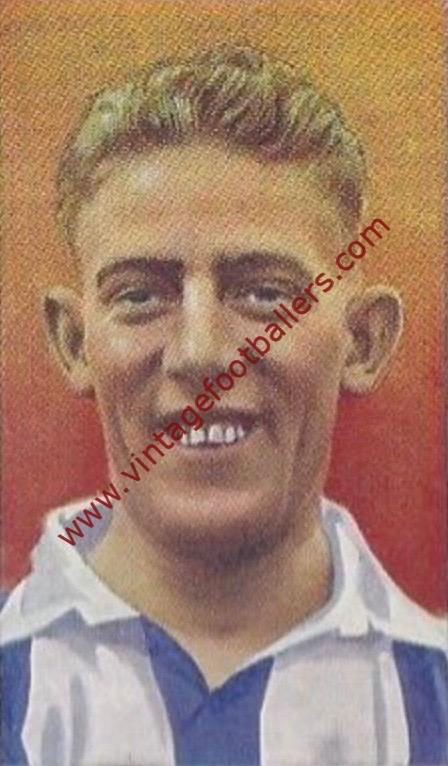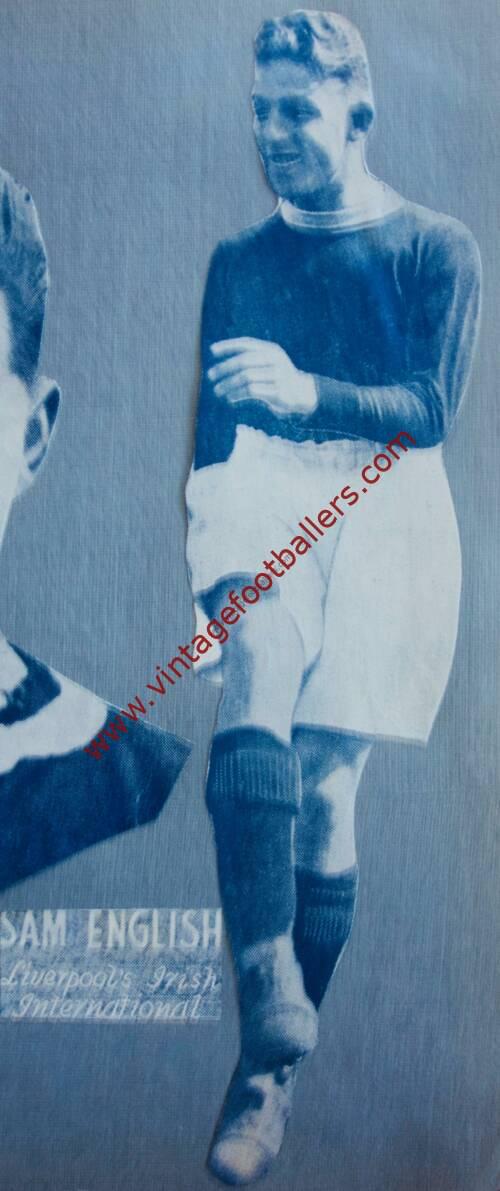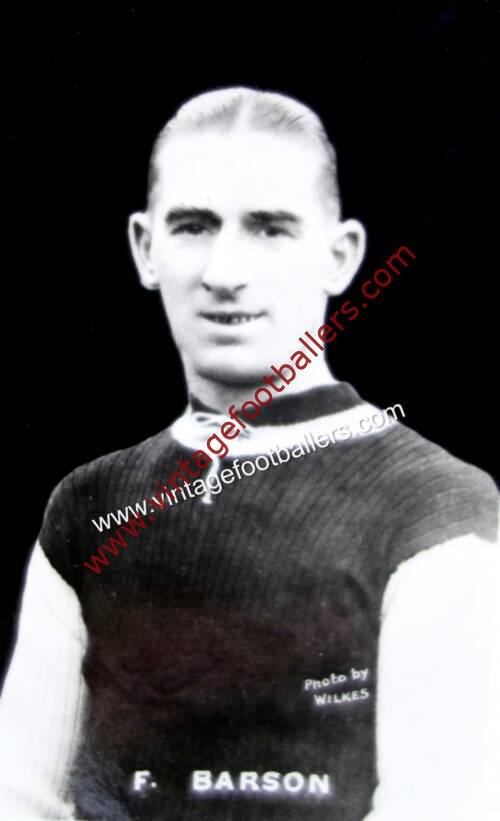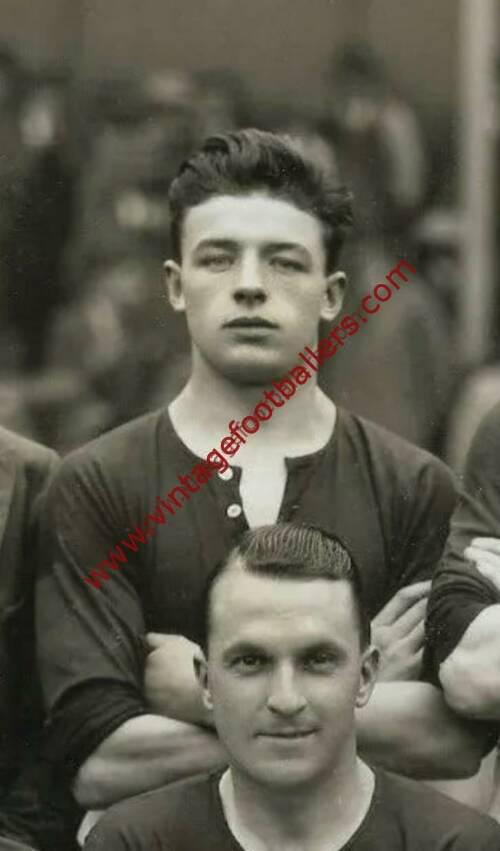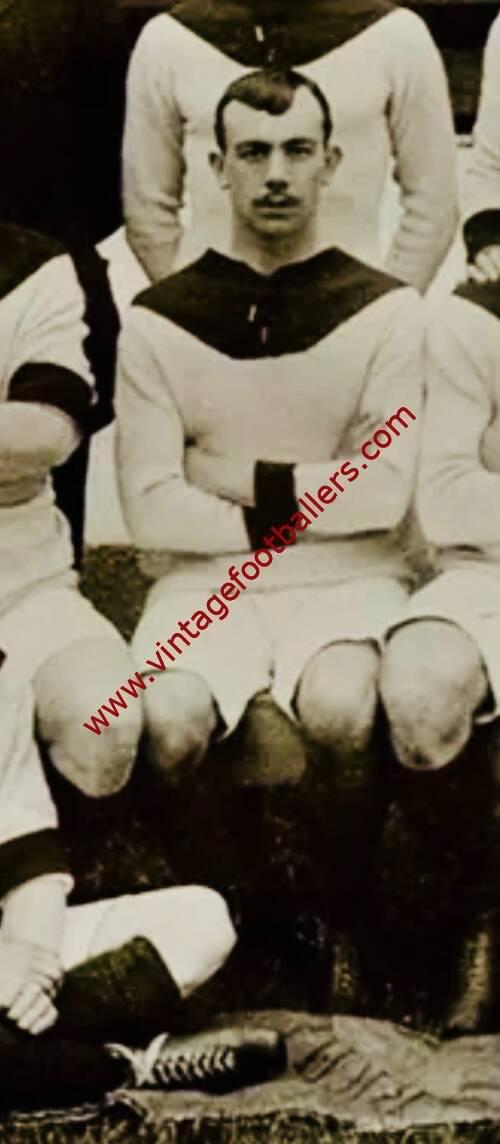Please choose your photo size from the drop down menu below.
If you wish your photo to be framed please select Yes.
Note: 16″x 20″not available in a frame.
Images can also be added to accessories. To order please follow these links
£8.95 – £49.95
Please choose your photo size from the drop down menu below.
If you wish your photo to be framed please select Yes.
Note: 16″x 20″not available in a frame.
Images can also be added to accessories. To order please follow these links
Aghadowey (he was actually born in the nearby hamlet of Crevolea), near Coleraine, County Londonderry born centre forward Sam English had moved with his family to Scotland as a teenager and began his football career with Port Glasgow Juniors in 1926 and Old Kilpatrick in 1927, playing for Yoker Athletic from 1928, where he was a prolific goalscorer and soon attracted the attention of Glasgow Rangers, who signed him in July 1931. He made his Scottish League debut that August against Dundee, scoring in a 4-1 win at Ibrox
In an incredible debut season, Sam English holds the Rangers record for the most League goals scored in one season: 44 goals from 35 appearances in 1931-32, a record that still stands. English scored 53 goals in all competitions that season, including a five goal haul against Morton, four goals against Queens Park and hat-tricks against Dundee United, Leith Athletic, Falkirk, Brechin City, Ayr United and Raith Rovers. At the season end English won the 1932 Scottish Cup Final, scoring Rangers’ second goal in a 3-0 win over Kilmarnock in a replayed match, played in total in front of 217,000 spectators across the two matches.
However English’s career was overshadowed by the tragic incident on 5th September 1931 where he was involved in a collision with John Thomson, the Celtic goalkeeper. Thomson dived for the ball and his head collided with English’s knee (not his boot, as sometimes claimed). Thomson suffered serious injuries to his skull and died in hospital a few hours later. The official enquiry found that the collision was an accident, and cleared English of any blame; a view which was fully supported by Thomson’s family and all players from both teams who were on the field at the time. Nevertheless, English was deeply traumatised by what had happened to Thomson.
English was less prolific the following season, but still scored 11 goals in 30 League and Cup matches, helping Rangers to win the Scottish League Championship. He made his debut for Ireland in a home game at Windsor Park, Belfast on 17 September 1932, Ireland losing 4-0 to Scotland. English won his second and final cap on 7th December 1932, in a 4-1 defeat to Wales at the Racecourse Ground, Wrexham, with English scoring Ireland’s goal.
Although he was cleared of malice in the Thomson incident, jeering by Scottish crowds caused his move to England. English signed for Liverpool for a transfer fee of £8,000 in July 1933 after 70 goals in 79 appearances for Glasgow Rangers. He began the season in fine form, making a blistering start to his Anfield career and by the halfway stage of the 1933-34 season he had already scored 16 times, failing to score in only three of his first 16 appearances. However he played less regularly as the season progressed, but still scored a further f4 goals to finish the season with 20 goals in 31 League and Cup appearances. The following season saw English in and out of the team, and he could only score six more goals in 19 games.
English returned to Scotland to join Queen of the South in July 1935 before moving back to England in the 1936 close season to play for Hartlepools United in Third Division (North), where it was said of him that he “plays a fast and fearless game and is difficult to knock off the ball”. After scoring 20 goals in his debut season he retired from the professional game at the end of the 1937-38 season disillusioned with football at the age of 28 after two seasons with Hartlepool, having scored 31 goals in 75 matches for The Monkey Hangers. He said that his career since the Thomson accident had been “seven years of joyless sport.” He returned to Scotland and played for Duntocher Hibs before finally hanging up his boots.
His Rangers’ teammate, Bob McPhail, later paid English the ultimate praise: “Though I never played with the great Dixie Dean of Everton, I did play against him. I would have taken English before him.”
| Weight | N/A |
|---|
